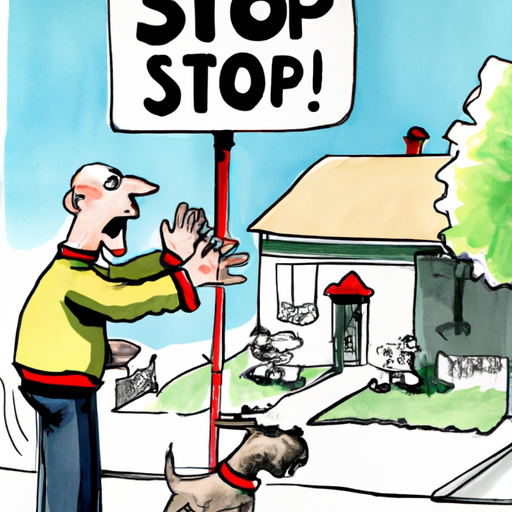If you’ve ever wished to hit the ‘mute’ button on your dog, you’re not alone. Excessive barking can be a nuisance, and not just for you, but for your neighbors as well. Let’s dive into some effective strategies to help you stop your dog from barking.
1. Understanding Why Dogs Bark
Before you can address the problem, it’s important to understand why dogs bark in the first place. Dogs bark as a form of communication, but sometimes, it can be a sign of distress or discomfort.
- Boredom or loneliness: Dogs are social animals and can feel lonely when left alone for long periods.
- Attention-seeking: Some dogs bark to get attention from their owners.
- Fear or alarm: Dogs often bark when they are scared or when they sense danger.
- Separation anxiety: Dogs suffering from separation anxiety may bark excessively when their owner leaves.
2. Training Your Dog Not To Bark
Training is key in teaching your dog to stop barking unnecessarily. Here are some steps you can follow:
- Identify the trigger: Find out what’s causing your dog to bark. It could be a specific sound, object, or situation.
- Teach the ‘quiet’ command: Start by saying ‘quiet’ when your dog starts barking. Reward your dog when they stop barking.
- Consistent practice: Consistency is important. Practice the ‘quiet’ command regularly, and always reward your dog for obeying.
3. Using Positive Reinforcement
Positive reinforcement is an effective method to curb barking. Reward your dog with treats, praises, or toys when they stop barking on command.
| Behavior | Reward |
|---|---|
| Barking stops on command | Treat |
| Not barking when triggered | Praise |
| Staying quiet when left alone | Toy |
4. Addressing Underlying Issues
If your dog is barking due to loneliness or anxiety, addressing these underlying issues can help reduce the barking. Consider these options:
- Interactive toys: Toys can keep your dog entertained and reduce feelings of boredom or loneliness.
- Regular exercise: Regular physical activity can help reduce your dog’s energy and keep them calm.
- Professional help: If your dog suffers from severe separation anxiety, you may need to consider seeking professional help.
5. Using Anti-Barking Devices
Anti-barking devices can be another option, but they should be used as a last resort and always under the guidance of a professional. Some popular devices include:
- Ultrasonic devices: These emit a high-frequency sound when your dog barks.
- Citronella spray collars: These release a citronella spray when your dog barks, distracting them and stopping the barking.
6. What Not To Do
While it’s important to know what to do, it’s equally important to know what not to do:
- Don’t yell: Yelling at your dog to stop barking can make them think you’re joining in, which can encourage more barking.
- Don’t ignore the problem: Ignoring excessive barking won’t make it go away. It’s important to address the issue head-on.
7. Consulting with a Professional
If you’ve tried everything and your dog is still barking excessively, it may be time to consult with a professional dog trainer or a veterinarian. They can provide tailored advice and guidance based on your dog’s specific needs.
8. Frequently Asked Questions
Q: How long does it take to train a dog to stop barking?
A: It depends on the dog and the cause of the barking. Consistent training can show results in a few weeks.
Q: Is it bad to use anti-barking devices?
A: Anti-barking devices should be used as a last resort and always under the guidance of a professional.
Q: What if my dog is barking due to fear or anxiety?
A: In such cases, it’s important to address the root cause. You may need to consult with a professional.
Remember, patience is key when training your dog. It may take time, but with consistent effort, you can help your dog become a quieter, happier, and better-behaved companion.



